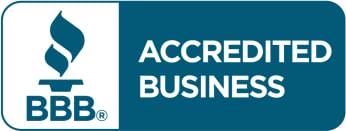Aetna offers health, vision and dental coverage to millions of subscribers, making it one of the largest insurance companies in the United States. In 2018, the company was acquired by CVS Health, giving patients expanded access to prescription coverage, urgent care clinics and other services. If you need treatment for an addiction to alcohol, illicit drugs or prescription medications, you may be able to use your Aetna insurance to cover some or all of the costs.
Expanded Coverage for Substance Abuse Treatment
The Patient Protection and Affordable Care Act was a landmark piece of legislation passed during the Obama administration. Not only did the ACA expand access to health coverage, but it also defined 10 essential benefits that all health plans offered by Medicaid or sold on health insurance exchanges must offer. One of those essential benefits is coverage for substance abuse treatment, a serious condition that can have lasting physical and psychological effects. Professional treatment can help people with addictions stop using drugs and alcohol, heal from past trauma and develop the skills needed to cope with challenges in a healthier way.
Before the ACA defined substance abuse treatment as an essential benefit, many insurance companies provided limited coverage for addiction-related services. Some companies imposed annual limits, while others had lifetime limits for this type of treatment, making it difficult for patients to seek treatment for the first time or get help after a relapse. Now that many plans are required to cover treatment for substance abuse, it’s easier for patients to access inpatient treatment, supervised medical detox, outpatient addiction treatment and other services used to treat addiction and address underlying mental health conditions.
Aetna Insurance Coverage for Substance Use Disorder
Aetna grew to be one of the largest insurance companies in the nation by offering a wide variety of plans for individuals, families and organizations. For example, many employers purchase their group health coverage from Aetna. The company also sells health plans directly to individuals and families, offers Medicare Advantage plans in some states and provides Medicaid coverage in states that have outsourced their Medicaid programs to private health insurance companies.
One of the most common addiction-related services covered by Aetna is screening, brief intervention and referral to treatment (SBIRT). SBIRT isn’t a type of addiction treatment, but it helps health care providers screen for addiction and make appropriate referrals for additional services. If your plan covers SBIRT, your primary care provider may conduct the screening and refer you for inpatient or outpatient treatment as needed. Once you have a referral, it’s up to you to contact a treatment facility and arrange for short-term or long-term treatment.

Treatment Considerations with Aetna Insurance Benefits
Aetna covers millions of subscribers throughout the United States, but not all subscribers have the same level of coverage. The amount of coverage available for addiction treatment services depends on many factors, such as the terms of your plan, your annual deductible and whether you receive treatment from an in-network or out-of-network provider. If you’re not sure what to expect with your Aetna insurance plan, one of our admissions coordinators can verify your benefits and let you know if your plan will cover a stay at our residential treatment center.
Your Insurance Network
When you’re discussing health insurance, a network is a group of providers who’ve agreed to provide health care to members of a specific plan. Insurance providers like Aetna typically negotiate lower rates with network members, so your choice of treatment provider has an impact on your out-of-pocket costs for addiction treatment.
Because in-network providers charge less, you’ll typically pay less for their services. If you decide to go to a provider that isn’t in your network, you may have to pay a larger share of the costs. Depending on the terms of your plan, Aetna may not cover any out-of-network services, or it may require you to pay more than you’d pay for the same services performed by an in-network provider. Virtue at the Pointe accepts many Aetna plans, but it’s important to verify your benefits ahead of time to make sure your plan covers residential treatment.
Coverage for Addiction-Related Services
Although addiction treatment is now considered an essential health benefit, health insurance providers don’t have to cover 100% of the costs. How much you have to pay depends on which plan you have. Some plans have no deductible, while others have an annual deductible of $1,000 or more. You may also have to pay coinsurance, or a certain percentage of the treatment costs. Therefore, the out-of-pocket costs of treatment may vary drastically from one plan to another.
If you have Aetna coverage, your plan may cover some or all of the following benefits:
- Inpatient/residential treatment
- Intensive outpatient treatment
- Outpatient therapy
- Family counseling
- Group counseling
Inpatient and residential treatment are similar, but there’s one key distinction: inpatient treatment occurs in a secure hospital unit, while residential treatment takes place in a comfortable environment that’s more like a home than a hospital or clinic. At Virtue at the Pointe, residential treatment typically lasts for 23 to 35 days, but it may last longer if you need additional support. When you arrive at our treatment center, you’ll undergo a thorough assessment to determine what services you need and how long you can expect your stay to last.
Intensive outpatient treatment typically takes place several days per week, while outpatient therapy may only occur on a weekly basis. Family and group counseling are used to help people with substance use disorders improve their communication skills, be assertive without being aggressive and develop coping skills that can help them abstain from drug and alcohol use.




